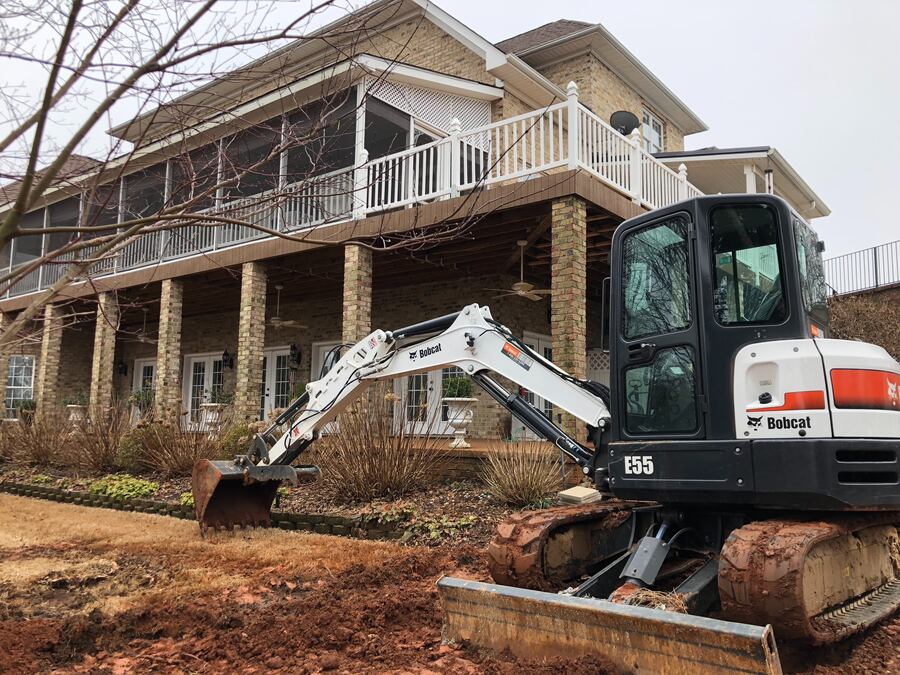Call This Monday to Get $25 OFF
Clean Solutions, Dirty Jobs – Done Right. Reliable. Responsive. Remarkable.
Call This Monday to Get $25 OFF
Clean Solutions, Dirty Jobs – Done Right. Reliable. Responsive. Remarkable.
When considering a septic tank installation, you must evaluate the location of existing infrastructure, such as water lines. Installing a septic system over an existing water line poses several concerns, from health risks to potential damage. As a reputable septic company, Septic Connection can ensure a seamless installation, eliminating risks associated with improper system setup. Let’s explore whether installing a septic system over an existing water line is safe to help you make an informed decision.

One of the main concerns before a reliable septic tank installation is the risk of contamination. Septic systems manage and treat wastewater from your household, and any leaks or malfunctions could cause sewage to seep into nearby water lines. If a water line is compromised because of its proximity to a septic tank, it could result in severe health risks, including exposure to harmful bacteria, viruses, and pathogens. The possibility of cross-contamination prompts alternative placement options to avoid such scenarios.
Another critical aspect to consider is the potential for physical damage to the water lines during the installation or maintenance services like septic tank pumping in Greer, SC. Septic systems require excavation and significant groundwork, which could inadvertently damage water lines located directly beneath or nearby. A damaged water line can cause leaks, water loss, and even water supply contamination. Recurring septic tank repair calls can be costly and inconvenient. Therefore, ensuring a safe distance between the septic system and existing water lines is essential to prevent unnecessary complications.
Local regulations and building codes often significantly determine whether a septic system can be installed over an existing water line. Many municipalities have specific guidelines and setback requirements to prevent cross-contamination or damage to public utilities. These regulations protect public health and the environment. It is crucial to consult with local authorities or a trusted septic company and obtain necessary permits before installing plans. Ignoring these regulations could result in fines, legal issues, recurring septic tank cleaning sessions, or the need to relocate the system, which could add substantial costs to the project.
The septic system is an onsite waste treatment facility, and it is incredibly reliable. However, the system is only as effective…
Imagine flushing your toilet and then suddenly realizing that your backyard has turned into a swampy mess. This unpleasant experience is…
Soil testing is a critical step in various construction and environmental projects. It provides essential information about the ground conditions, which…
Grease traps are remarkable tools that help keep your establishment clean and free from bad odors. Septic Connection has a…
If you have just moved into a new home or property that relies on a septic system for waste and wastewater…
From an engineering perspective, placing a septic system over a water line is not recommended because of the complexities involved. Engineers must consider soil conditions, water table levels, and the potential impact on the existing infrastructure. If space constraints make it challenging to find an alternative location, other solutions like relocating the water line or using advanced septic systems for challenging terrains might be explored. These options can come with additional costs and require a professional assessment to avoid hazards or septic tank repair emergencies later.
Before installing a septic system over an existing water line, it is essential to seek professional advice. Septic system installers and engineers can thoroughly assess the site and offer recommendations that comply with safety and regulatory standards. They can also ensure the installation site is accessible for septic tank cleaning and other maintenance tasks. Investing in expert advice can save time and money and prevent potential health hazards.
While installing a septic system over an existing water line might seem convenient, it is full of potential risks and complications. Exploring alternative placements and seeking professional guidance is crucial to ensure a safe and compliant septic system installation. Contact us at Septic Connection and schedule a consultation with our experts. We provide comprehensive services, including septic tank pumping and maintenance, to enhance safety and follow local regulations.
Many septic system failures do not happen overnight. They develop quietly, over months or even years, until a small issue becomes an expensive emergency. That is why routine septic maintenance…
Read moreA properly functioning septic system is essential for protecting your home, property, and local environment. Unfortunately, many homeowners only think about their septic system when something goes wrong. As a…
Read more